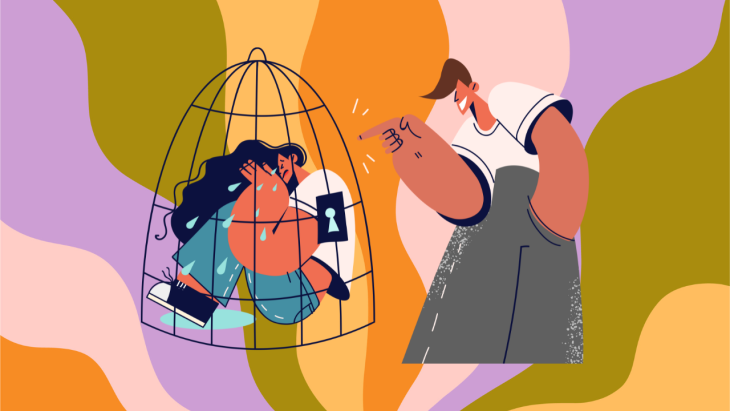Recent Posts
- I broke up with my partner, but now I am having doubts. Did I do it out of the right reasons or was I just being fearful?
- My Quick Temper Pushes People Away. What Do I Do To Manage My Anger?
- How does noise affect my mental health?
- I want to be a better problem solver. What is a step by step approach?
- Escapism. When is it healthy? When is it damaging?
Most Popular
Divorces and Abusive Relationships: Breaking the Cycle

Divorce is a difficult and emotional process for anyone to go through, but it can be even more challenging for those who have experienced abuse in their relationship. Abuse can leave deep scars that take time to heal. In this blog, we will discuss how to protect mental health and well-being during and after divorce, and how to break the cycle.
Abuse can happen to anyone, regardless of age, gender, race, or sexual orientation. It comes in many forms, including physical, emotional, and financial. Domestic violence is a pervasive issue in our society, and it affects millions of people every year. According to the National Coalition Against Domestic Violence (NCADV), 1 in 4 women and 1 in 9 men experience severe intimate partner physical violence, intimate partner contact sexual violence, and/or intimate partner stalking in their lifetime. These numbers are staggering and demonstrate the urgent need for more support and resources for victims of abuse.
When it comes to ending an abusive relationship, there are a number of emotional challenges, which can bring up a range of difficult feelings, including anger, sadness, guilt, and shame. Many victims of abuse develop mental health issues as a result of the anxiety, stress, and trauma they are experiencing. They are at higher risk of developing chronic anxiety, eating disorders, depression, post-traumatic stress disorder (PTSD), gynecological problems, and other physical and emotional problems, as well as alcohol and drug addiction. These issues can continue long after the abuse has ended and can make the divorce process even more challenging.
One of the most significant challenges for victims of abuse is leaving their abusive partner. The prolonged exposure to fear and violence are associated with a psychological state known as “learned helplessness”, which is a mindset where the victim believes that the circumstances are so dire that they are unable to change or improve the situation. This state of mind occurs when an individual experiences repeated negative or uncontrollable events, leading them to believe that they have no control over the outcome of their actions. As a result, they may give up trying to change their circumstances and become passive, feeling trapped, isolated and helpless, which can make it more difficult to break away.
Breaking the cycle of abuse can be challenging, but everyone deserves to live a life free from violence and fear. Leaving an abusive relationship is the first step towards healing and creating a better future for oneself. Eleanor Roosevelt, the First Lady of the United States (1933-1945), one of the most influential and impactful women of the 20th century, said that “No one can make you feel inferior without your consent”, in her book “This is My Story” in 1937. This quote has since become widely recognized, inspiring people to take control of their own self-worth and not allow others to diminish their value. Victims of abuse should remember that no one has the right to make them feel small or powerless, and they have the power to break free from the cycle of abuse.
Taking the first step can be difficult and can take a toll on someone’s emotional state due to its complexity. There are therapeutic ways to improve mental health and well-being before, during, and after a traumatic divorce. Therapy, support groups, and counseling can help victims process their emotions and begin the healing process.
Prioritizing self-care is crucial during this highly stressful time. Self-care can take many forms, including getting enough sleep, eating a healthy diet, and exercising regularly. Take time to engage in activities that bring joy and fulfillment, such as hobbies, reading, or spending time in nature. Victims of abuse should also consider working with an attorney to establish clear guidelines for communication and interaction. This can alleviate some of the stress and anxiety associated with the divorce process and allow victims to focus on their mental health and well-being.
“Owning our story and loving ourselves through that process is the bravest thing we’ll ever do.” - Brene Brown, researcher, storyteller, and author of “The Gifts of Imperfection”.
Choosing to leave an abusive relationship and filing for divorce is a courageous act of self-love and self-preservation. Healing from abuse takes time. It can be incredibly difficult and painful, but ultimately leads to a brighter future.







Comments